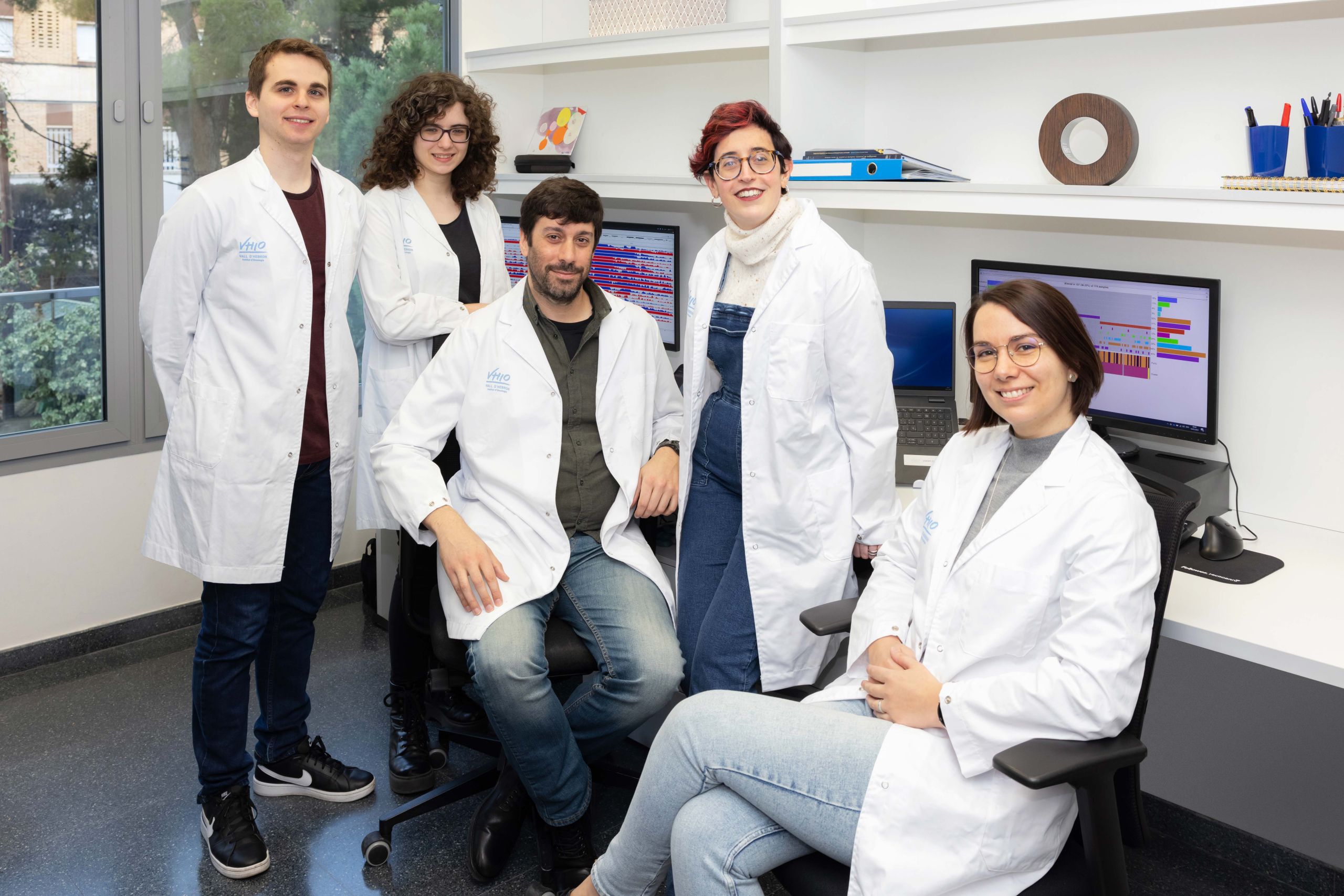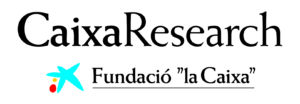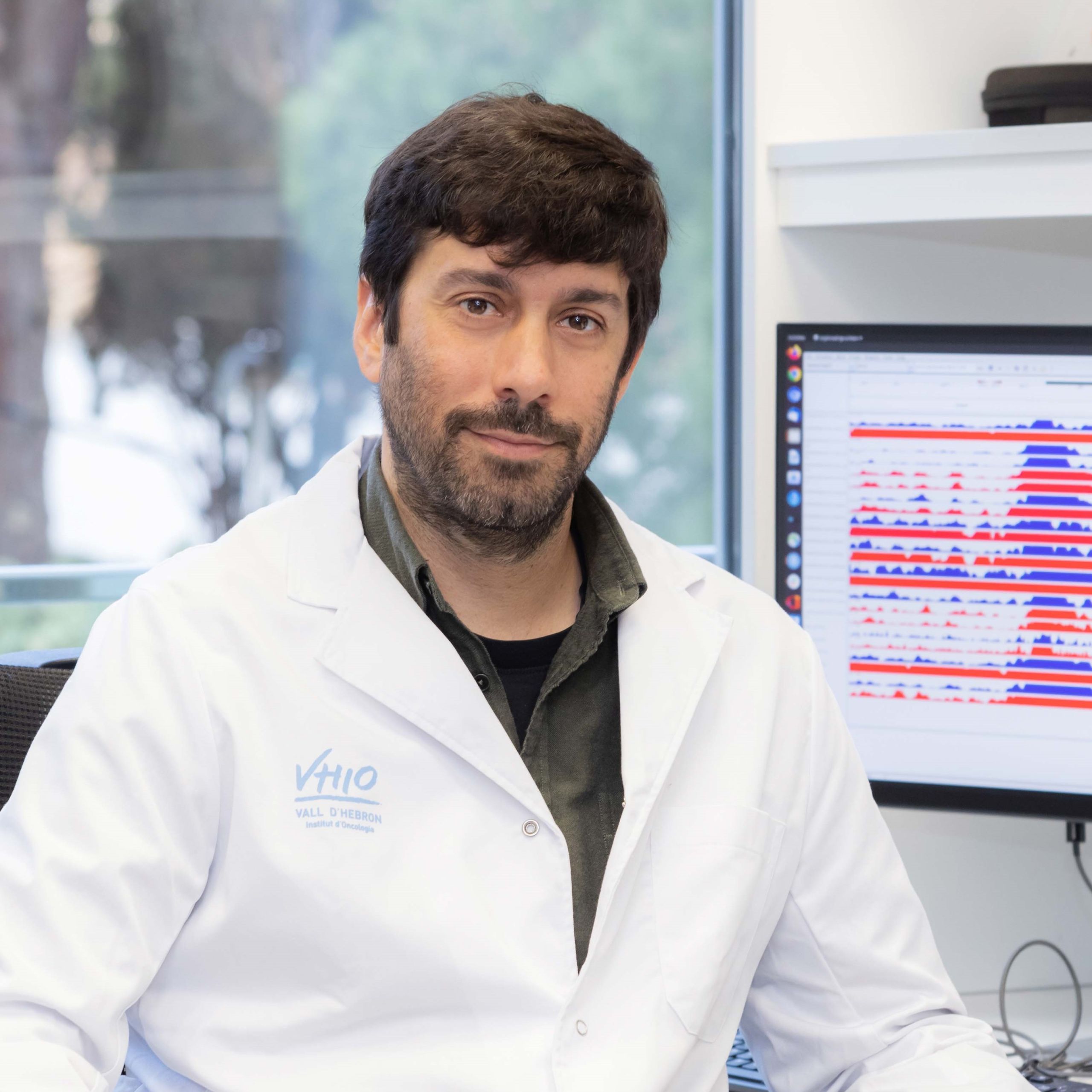
Introduction to data in cancer
The Cancer Computational Biology group leverage epi(genetic) cancer datasets in order to discover the molecular mechanism related with cancer initiation, progression, drug resistance and metastasis in order to improve patient perspectives.
We aim to advance insights into the role of chromatin regulatory elements in treatment response and metastasis, develop novel epigenetic synthetic lethality-based therapeutic options, improve patient stratification guided by multi-omics analysis, and seek out novel epigenetic biomarkers of treatment response.
We have shown how the genes that modify the chromatin structure are associated with chemotherapy resistance in breast cancer (Nature Medicine, 2019). We are interested in understanding how these epigenetic modifications affect drug resistance and how epigenetic drugs can be used to target tumor suppressor genes.
We are also interested in machine learning based integration of multi-omic datasets in order to discover new cancer subgroups and biomarkers, and prediction of outcome and drug response.
We have participated in multiple international consortiums including The Cancer Genome Atlas, Human Tumor Atlas Network, Cancer Target Discovery and Development and recently and recently AURORA (Metastatic breast cancer multi-omic cohort)
- Understand the role of chromatin regulatory elements in treatment response and metastasis.
- Discover new epigenetic biomarkers of drug response.
- Potentiate therapeutic options by combining epigenetic therapies with other agents.
- Discover potential environmental causes of early onset cancer.
Group Leader
José Antonio Seoane
Post-Doctoral Fellow
Silvana Maas
Bioinformatician
Arnau Llinàs
Graduate student
M José Fariña
Master student
María Butjosa
More relevant publications 2022
- Strand SH, Rivero-Gutiérrez B, Houlahan KE, Seoane JA, King LM, Risom T, Simpson LA, Vennam S, Khan A, Cisneros L, Hardman T, Harmon B, Couch F, Gallagher K, Kilgore M, Wei S, DeMichele A, King T, McAuliffe PF, Nangia J, Lee J, Tseng J, Storniolo AM, Thompson AM, Gupta GP, Burns R, Veis DJ, DeSchryver K, Zhu C, Matusiak M, Wang J, Zhu SX, Tappenden J, Ding DY, Zhang D, Luo J, Jiang S, Varma S, Anderson L, Straub C, Srivastava S, Curtis C, Tibshirani R, Angelo RM, Hall A, Owzar K, Polyak K, Maley C, Marks JR, Colditz GA, Hwang ES, West RB. Molecular classification and biomarkers of clinical outcome in breast ductal carcinoma in situ: Analysis of TBCRC 038 and RAHBT cohorts. Cancer Cell. 2022 Dec 12;40(12):1521-1536.e7.
- Nobre AR, Dalla E, Yang J, Huang X, Wullkopf L, Risson E, Razghandi P, Anton ML, Zheng W, Seoane JA, Curtis C, Kenigsberg E, Wang J, Aguirre-Ghiso JA. ZFP281 drives a mesenchymal-like dormancy program in early disseminated breast cancer cells that prevents metastatic outgrowth in the lung. Nat Cancer. 2022 Oct;3(10):1165-1180.
- Raj N, Wang M, Seoane JA, Zhao RL, Kaiser AM, Moonie NA, Demeter J, Boutelle AM, Kerr CH, Mulligan AS, Moffatt C, Zeng SX, Lu H, Barna M, Curtis C, Chang HY, Jackson PK, Attardi LD. The Mettl3 epitranscriptomic writer amplifies p53 stress responses. Mol Cell. 2022 Jul 7;82(13):2370-2384.e10.
- Liñares-Blanco J, Fernandez-Lozano C, Seoane JA, López-Campos G. Machine Learning Based Microbiome Signature to Predict Inflammatory Bowel Disease Subtypes. Front Microbiol. 2022 May 17;13:872671.
All publications
- Strand SH, Rivero-Gutiérrez B, Houlahan KE, Seoane JA, King LM, Risom T, Simpson LA, Vennam S, Khan A, Cisneros L, Hardman T, Harmon B, Couch F, Gallagher K, Kilgore M, Wei S, DeMichele A, King T, McAuliffe PF, Nangia J, Lee J, Tseng J, Storniolo AM, Thompson AM, Gupta GP, Burns R, Veis DJ, DeSchryver K, Zhu C, Matusiak M, Wang J, Zhu SX, Tappenden J, Ding DY, Zhang D, Luo J, Jiang S, Varma S, Anderson L, Straub C, Srivastava S, Curtis C, Tibshirani R, Angelo RM, Hall A, Owzar K, Polyak K, Maley C, Marks JR, Colditz GA, Hwang ES, West RB. Molecular classification and biomarkers of clinical outcome in breast ductal carcinoma in situ: Analysis of TBCRC 038 and RAHBT cohorts. Cancer Cell . 2022 Dec 12;40(12):1521-1536.e7.
- Nobre AR, Dalla E, Yang J, Huang X, Wullkopf L, Risson E, Razghandi P, Anton ML, Zheng W, Seoane JA, Curtis C, Kenigsberg E, Wang J, Aguirre-Ghiso JA. ZFP281 drives a mesenchymal-like dormancy program in early disseminated breast cancer cells that prevents metastatic outgrowth in the lung. Nat Cancer . 2022 Oct;3(10):1165-1180.
- Raj N, Wang M, Seoane JA, Zhao RL, Kaiser AM, Moonie NA, Demeter J, Boutelle AM, Kerr CH, Mulligan AS, Moffatt C, Zeng SX, Lu H, Barna M, Curtis C, Chang HY, Jackson PK, Attardi LD. The Mettl3 epitranscriptomic writer amplifies p53 stress responses. Mol Cell . 2022 Jul 7;82(13):2370-2384.e10.
- Liñares-Blanco J, Fernandez-Lozano C, Seoane JA, López-Campos G. Machine Learning Based Microbiome Signature to Predict Inflammatory Bowel Disease Subtypes. Front Microbiol . 2022 May 17;13:872671..
- DCIS genomic signatures define biology and correlate with clinical outcome: a Human Tumor Atlas Network (HTAN) analysis of TBCRC 038 and RAHBT cohorts
Siri H Strand, Belén Rivero-Gutiérrez, Kathleen E Houlahan, Jose A Seoane, Lorraine King, …,Christina Curtis, Rob Tibshirani, Robert Michael Angelo, Allison Hall, Kouros Owzar, Kornelia Polyak, Carlo Maley, Jeffrey R Marks, Graham A Colditz, E Shelley Hwang, Robert B West
bioRxiv, Jun 2021
10.1101/2021.06.16.448585 - CRISPR screens in cancer spheroids identify 3D growth-specific vulnerabilities
Kyuho Han, Sarah E Pierce, Amy Li, Kaitlyn Spees, Grace R Anderson, Jose A Seoane, Yuan-Hung Lo, Michael Dubreuil, Micah Olivas, Roarke A Kamber, Michael Wainberg, Kaja Kostyrko, Marcus R Kelly, Maryam Yousefi, Scott W Simpkins, David Yao, Keonil Lee, Calvin J Kuo, Peter K Jackson, Alejandro Sweet-Cordero, Anshul Kundaje, Andrew J Gentles, Christina Curtis, Monte M Winslow, Michael C Bassik
Nature, 580(7801):136-141, April. 2020 - Convergent mutations in tissue-specific regulatory regions reveal novel cancer drivers
Nasa Sinnott-Armstrong, Jose A Seoane, Jonathan K Pritchard, Christina Curtis, Michael P Snyder
BioRxiv, Nov. 2020 - Chromatin regulators mediate anthracycline sensitivity in breast cancer
Jose A Seoane, Jacob G Kirkland, Jennifer L Caswell-Jin, Gerald R Crabtree, Christina Curtis
Nature medicine, 25(11):1721-1727, Nov. 2019 - Dynamics of breast-cancer relapse reveal late-recurring ER-positive genomic subgroups
Oscar M Rueda, Stephen-John Sammut, Jose A Seoane, Suet-Feung Chin, Jennifer L Caswell-Jin, Maurizio Callari, Rajbir Batra, Bernard Pereira, Alejandra Bruna, H Raza Ali, Elena Provenzano, Bin Liu, Michelle Parisien, Cheryl Gillett, Steven McKinney, Andrew R Green, Leigh Murphy, Arnie Purushotham, Ian O Ellis, Paul D Pharoah, Cristina Rueda, Samuel Aparicio, Carlos Caldas, Christina Curtis
Nature, 567(7748):399-404, Mar. 2019 - Assessment of ERBB2/HER2 status in HER2-equivocal breast cancers by FISH and 2013/2014 ASCO-CAP guidelines
Michael F Press, Jose A Seoane, Christina Curtis, Emmanuel Quinaux, Roberta Guzman, Guido Sauter, Wolfgang Eiermann, John R Mackey, Nicholas Robert, Tadeusz Pienkowski, John Crown, Miguel Martin, Vicente Valero, Valerie Bee, Yanling Ma, Ivonne Villalobos, Dennis J Slamon
JAMA oncology, 5(3):366-375, Mar. 2019 - The chromatin accessibility landscape of primary human cancers
M Ryan Corces, Jeffrey M Granja, Shadi Shams, Bryan H Louie, Jose A Seoane, Wanding Zhou, Tiago C Silva, Clarice Groeneveld, Christopher K Wong, Seung Woo Cho, Ansuman T Satpathy, Maxwell R Mumbach, Katherine A Hoadley, A Gordon Robertson, Nathan C Sheffield, Ina Felau, Mauro AA Castro, Benjamin P Berman, Louis M Staudt, Jean C Zenklusen, Peter W Laird, Christina Curtis, William J Greenleaf, Howard Y Chang
Science, 362(6413), Oct. 2018 - Canonical correlation analysis for gene-based pleiotropy discovery
Jose A Seoane, Colin Campbell, Ian NM Day, Juan P Casas, Tom R Gaunt
PLoS Computational Biology, 10(10), Oct. 2014 - A pathway-based data integration framework for prediction of disease progression
Jose A Seoane, Ian NM Day, Tom R Gaunt, Colin Campbell
Bioinformatics, 30(6):838-845, Mar. 2014
- Targeting synthetic lethality in Chromatin Regulatory Genes for gastrointestinal cancer treatment. Ref PID2020-115097RA-I00.
Agencia Estatal de Investigación. 9/2021-8/2025. PI: Jose A. Seoane - Ramon y Cajal Grant.
Agencia Estatal de Investigación. 2021-2025 - Epigenetic differences associated with hormone treatment resistant breast cancer heterogeneity Fundación FERO. 2022-2024
- Identificación in Silico de Respuesta a fármacos especifica de metastasis
Entidad Financiadora: MCIN/AEI/10.13039/501100011033Ref: CNS2022-135424Periodo de Ejecución: 01/09/2023 – 31/08/2025. PI: Jose Antonio Seoane
 Grant funded by the European Union NextGenerationEU/Plan de Recuperación, Transformación y Resilencia (PRTR)
Grant funded by the European Union NextGenerationEU/Plan de Recuperación, Transformación y Resilencia (PRTR)
- José A. Seoane was awarded with a Fundación FERO-GHD Breast Cancer Grant.
- José Liñares read his PhD dissertation and graduated with distinction. He is currently a postdoc in Julio Saez-Rodriguez’s lab, the Institute for Computational Biomedicine, Heidelberg, Germany.
- As part of a collaboration with the Human Tumor Atlas Network we developed a genomic classifier to identify risk of relapse in ductal carcinoma in situ.
- We participate in a study that identifies METTL3 as an upstream regulator of TP53.

This group is supported by CaixaResearch











